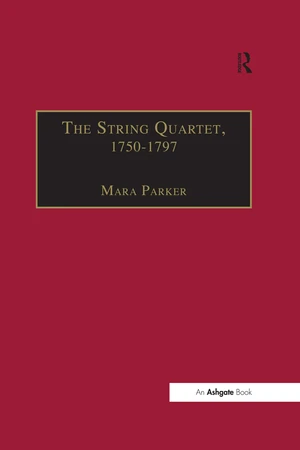The second half of the eighteenth century witnessed a flourishing of the string quartet, often represented as a smooth and logical progression from first violin-dominated homophony to a more equal conversation between the four voices. Yet this progression was neither as smooth nor as linear as previously thought, as Mara Parker illustrates in her examination of the string quartet during this period. Looking at a wide variety of string quartets by composers such as Pleyel, Distler and Filtz, in addition to Haydn and Mozart, the book proposes a new way of describing the relationships between the four instruments in different works. Broadly speaking, these relationships follow one of four patterns: the 'lecture', the 'polite conversation', the 'debate', and the 'conversation'. In focusing on these musical discourses, it becomes apparent that each work is the product of its composer's stylistic choices, location, intended performers and intended audience. Instead of evolving in a strict and universal sequence, the string quartet in the latter half of the eighteenth century was a complex genre with composers mixing and matching musical discourses as circumstances and their own creative impulses required.
Price history
Oct 25, 2021
€57.54

